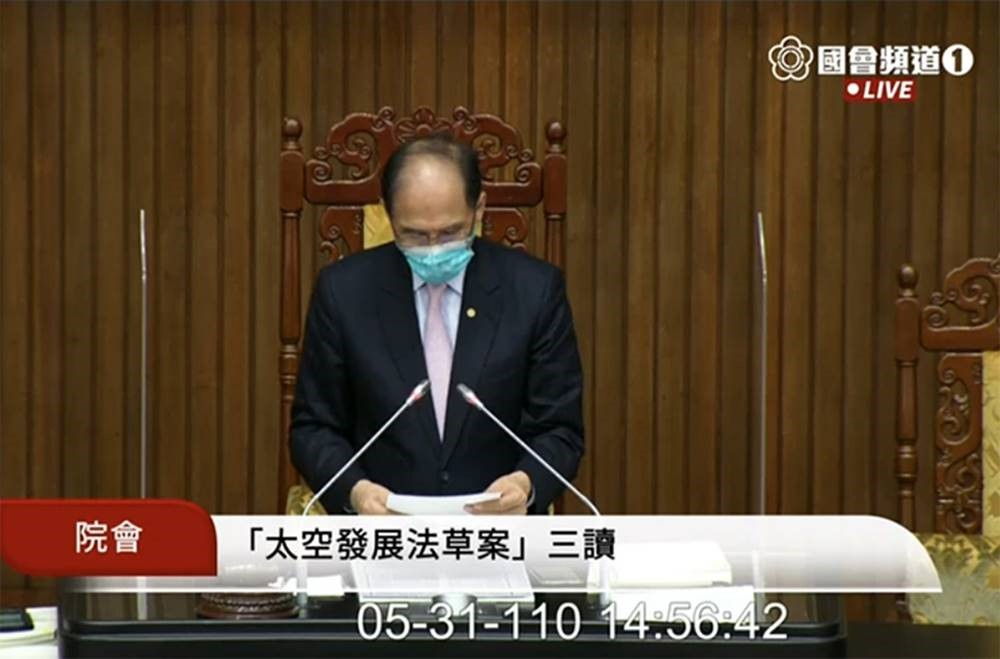
As it becomes a new field for global competition in the 21st century, countries both old and new to the space race have all been investing large amounts of resources to develop their local industry and space technology. After nearly 30 years of development, Taiwan has established the infrastructure and capabilities required for the development of space technology. In her inaugural speech on May 20, 2020, President Tsai Ing-wen listed the space industry as one of Taiwan's six core strategic industries. Through public policies, resource input, and related legal and support systems, Taiwan is sure to become an important emerging power in this industry, putting into practice a national security plan that is supported by space technology, while also benefiting economic development, the public's livelihood and welfare, and the overall development of the country's scientific and technological progress.
On May 31, the "Space Development Act" passed its third reading at the Legislative Yuan, making it the nation's first national space law. Its passage is an important step in laying the legal foundation for Taiwan's space development, providing legal compliance both for the public sector and private enterprises, and developing more pioneering technologies to enhance the country's competitiveness in space-related industries.
The Space Development Act is comprised of six sections and 22 articles, which stipulate that the Ministry of Science and Technology (MOST) serves as the competent authority for space activities. In addition, the clauses state that the government has been appointed as the special legal person to implement such national space policies and assist in the promotion of development-related matters. MOST is responsible for the establishment of relevant national launch sites, the above-mentioned legal person may be appointed to operate and manage them, and launches can only occur at national launch sites.
The Act also unveils the basic principles of Taiwan's space development, founded on environmental protection and sustainable development, while amendments were made to adhere to disclosure of information in line with national security interests. Additionally, it seeks to popularize space science and help the public understand Taiwan's space policy, leading to the cultivation of talent in the industry. Regarding indigenous people's rights and interests, the legislation also contains regulations on the deployment of national launch sites.
Currently, over 90 countries possess their own satellites, and over 31 have formulated or are formulating various forms of national space regulations. In response to the increasingly vigorous development of commercial and private space projects, the United Nations has been encouraging countries to enact national space laws for the sustainable use of space. Taiwan's completion of a legal framework for its space industry signals to the international community that it is willing to fulfill its responsibilities and obligations.
After the passage of the Space Development Act, MOST is now focused on completing related regulations and the "Regulations Establishing the National Space Center as Executive Legal Entity", in order to lay a long-lasting foundation for Taiwan's space development.


